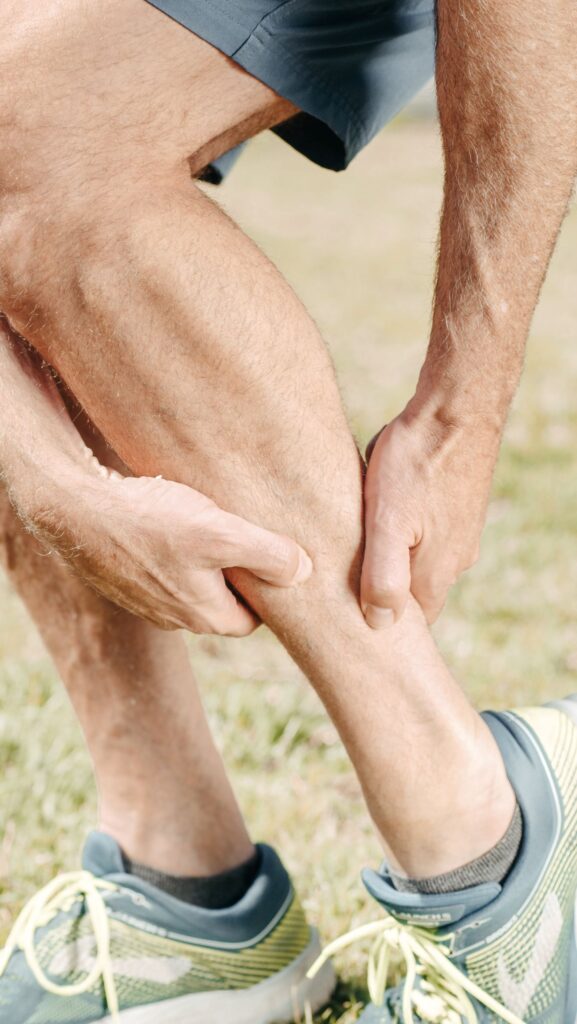Joint Health
How To Keep Joint Cartilage Healthy
Can you recall a time when you suffered from joint pain or stiffness? If that is the case, you are not the only one. It is crucial to continue to maintain the condition of your joint cartilage in order to keep your mobility and avoid experiencing discomfort. Within the scope of this article, we will investigate efficient methods for increasing the health of joint cartilage and maintaining the functionality of your joints.
The Importance of Joint Cartilage Health
The cartilage that lines the joints acts as a cushion between the bones, which enables movement that is painless and smooth. During actions such as walking, jogging, or leaping, it works as a shock absorber, minimizing the impact that is placed on your joints. Pain, stiffness, and a reduction in mobility are among symptoms that can result from cartilage in the joints becoming worn away or destroyed.
Common Causes of Joint Cartilage Damage
It is possible for joint cartilage to be damaged by a number of different reasons. The process of aging is one of the most common causes. As we become older, the cartilage in our joints begins to disintegrate because of natural processes, which can lead to joint difficulties. Additionally, accidents such as fractures or dislocations can cause damage to the cartilage in the joint. Additionally, cartilage wear and tear can be caused by repetitive stress on the joints, which can be caused by activities such as sports or specific vocations.

Signs and Symptoms of Joint Cartilage Deterioration
Identifying the symptoms of cartilage degeneration in the joints is essential for initiating treatment at an earlier stage. Pain, edema, stiffness, and a reduced range of motion are some of the usual symptoms that are associated with this condition. It is also possible that you will feel a grinding or popping feeling whenever you move the joint that is afflicted. In the event that you detect any of these symptoms, it is imperative that you seek the advice of a qualified medical practitioner in order to receive an accurate diagnosis and the right treatment.
Lifestyle Changes to Promote Joint Cartilage Health
Changing certain aspects of your lifestyle can make a major contribution to the general health of the cartilage in your joints. Keeping a healthy weight is the first and most important thing to do. Extra weight places an excessive amount of stress on your joints, which speeds up the process of cartilage degradation. It is possible to acquire and maintain a healthy weight by adopting a balanced diet and engaging in regular exercise. This will reduce the strain that is placed on your joints on a daily basis.

Exercise and Physical Activity for Joint Cartilage Health
In order to maintain joint cartilage, it is essential to engage in regular activity. Participating in low-impact exercises like swimming, cycling, or yoga can help strengthen the muscles that surround your joints and give support for them. Through the use of these exercises, joint mobility is enhanced, stiffness is reduced, and general joint health is improved. It is essential, however, to approach activities with a high impact with prudence in order to prevent putting an excessive amount of strain on your joints.
Nutritional Strategies for Maintaining Healthy Joint Cartilage
In order to maintain healthy joints, proper nutrition is an extremely important factor. Consuming a diet that is well-balanced and abundant in omega-3 fatty acids, antioxidants, and vitamins can assist in the reduction of inflammation and bolster the healing of cartilage. It is highly recommended that you include in your diet foods that are high in fat, such as fatty fish, nuts, seeds, fruits, and vegetables. In addition, reducing the amount of processed foods and sugary drinks you consume can assist in lowering inflammation levels in the body.

Natural Supplements and Remedies for Joint Cartilage Support
It is possible that using supplements that support the joints, such as glucosamine and chondroitin, could also be beneficial. It has been demonstrated that these drugs can alleviate joint pain and enhance joint function in certain persons. A number of other natural medicines, including turmeric, ginger, and boswellia extract, include anti-inflammatory characteristics and have the potential to ease joint discomfort. On the other hand, before to beginning any new supplements or treatments, it is essential to discuss the matter with a qualified medical practitioner.
Medical Interventions for Severe Joint Cartilage Damage
In situations where there is extensive damage to the cartilage in the joints, medical procedures might be required. It is possible that therapies such as arthroscopy, joint injections, or joint replacement surgery will be advised, however this will depend on the severity of the injury. The purpose of these procedures is to either repair or replace the cartilage that has been injured, which will provide relief and improve joint function. In order to establish the most appropriate course of action for your particular circumstance, it is essential to have a conversation with a trained healthcare practitioner about the various options that are accessible to you.
Conclusion
In conclusion, prioritizing my joint cartilage health has become crucial for maintaining my mobility and preventing discomfort. Taking proactive steps towards implementing the strategies discussed in this article, such as maintaining a healthy weight, engaging in low-impact exercises, and consuming a nutritious diet, has been essential for supporting my joint cartilage health and reducing the risk of joint problems. Additionally, considering natural supplements and seeking medical interventions when necessary has further promoted my joint health. I always remember to consult with a healthcare professional for personalized advice and guidance based on my individual needs.
With the right lifestyle choices and interventions, I am confident in keeping my joints happy and enjoying an active and pain-free life.


